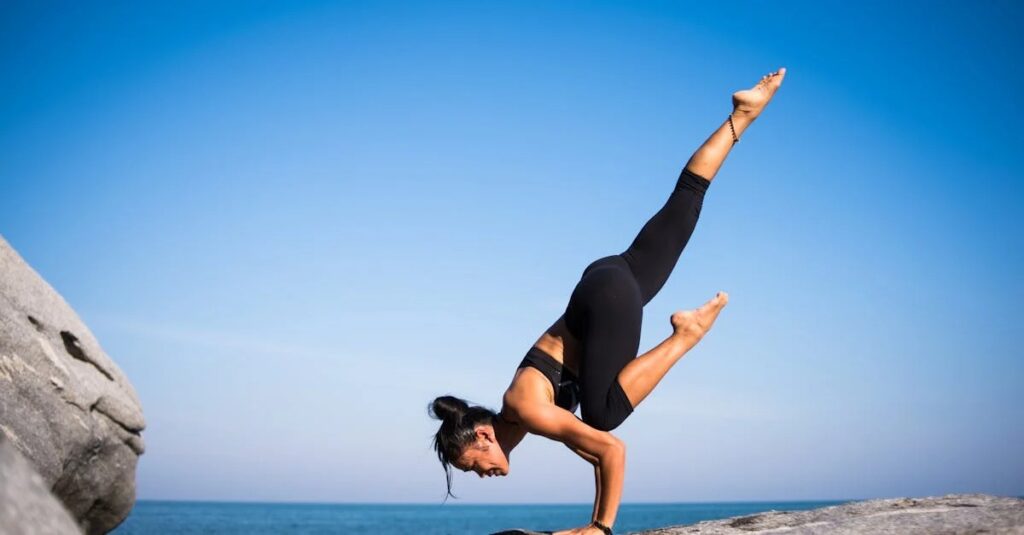In today’s fast-paced world, stress has become an unwelcome companion for many. Mindfulness-Based Stress Reduction (MBSR) offers a powerful antidote, helping individuals cultivate awareness and resilience. With its roots in meditation and yoga, MBSR teaches practical techniques to manage stress and enhance overall well-being.
Accessing MBSR resources in PDF format can make it easier for anyone to start their journey toward a calmer mind and a healthier life. These documents often include guided practices, exercises, and tips for integrating mindfulness into daily routines. By exploring these resources, individuals can take the first step toward transforming their relationship with stress and embracing a more mindful existence.
Mindfulness-Based Stress Reduction PDF
Mindfulness-Based Stress Reduction (MBSR) integrates mindfulness meditation and yoga to reduce stress and enhance well-being. Founded by Dr. Jon Kabat-Zinn in 1979, MBSR focuses on cultivating awareness of the present moment. This approach encourages individuals to observe their thoughts, feelings, and bodily sensations without judgment, promoting a greater connection to their experiences.
MBSR programs typically span eight weeks, combining guided meditations, gentle stretching, and group discussions. Each session builds on the previous one, helping participants develop essential mindfulness skills. Techniques include body scans, mindful breathing, and movement practices aimed at fostering relaxation and awareness.
Research shows MBSR’s effectiveness in managing stress, anxiety, and chronic pain. Studies indicate that participants often experience decreased levels of cortisol, improved emotional regulation, and enhanced overall mental health. The structured format of MBSR, alongside its accessibility through resources like PDFs, invites broader engagement with mindfulness practices.
Participating in MBSR often leads to a deeper understanding of one’s thought patterns and behaviors. As individuals learn to respond to stressors more skillfully, they report improved quality of life and enhanced resilience. Overall, MBSR serves as a valuable tool for individuals seeking practical strategies to cope with stress and promote well-being in their daily lives.
Benefits of Mindfulness-Based Stress Reduction
Mindfulness-Based Stress Reduction (MBSR) offers numerous benefits for both mental health and physical well-being. Participants often observe significant improvements in various aspects of their lives.
Improved Mental Health
Improved mental health is a primary benefit of MBSR. It reduces symptoms of anxiety and depression by fostering a non-judgmental awareness of thoughts and feelings. Participants report increased resilience to stress, enabling them to respond rather than react to challenges. Research indicates that 60% of individuals practicing MBSR experience decreased anxiety levels. Additionally, mindfulness meditation enhances emotional regulation, enabling individuals to manage their emotions more effectively. Overall, practice in mindful awareness leads to a greater sense of clarity and mental stability.
Enhanced Physical Well-Being
Enhanced physical well-being results from the integrative practices in MBSR. The techniques promote relaxation, which decreases physiological stress responses, such as elevated heart rates and blood pressure. Participants in MBSR programs experience up to a 30% reduction in chronic pain, according to studies. Furthermore, the incorporation of gentle stretching and yoga contributes to improved flexibility and strength. Improved sleep patterns often accompany MBSR practice, as mindfulness helps participants manage racing thoughts, leading to restful night’s sleep. These physical benefits combine to support a more balanced and healthier lifestyle.
Key Components of the Program
Mindfulness-Based Stress Reduction (MBSR) consists of several key components that facilitate stress relief and enhance well-being. Through structured practices and community support, participants cultivate essential mindfulness skills.
Mindfulness Practices
Mindfulness practices form the core of the MBSR program. Techniques include:
- Body Scan Meditation: Participants systematically focus on different body parts, promoting awareness and relaxation.
- Sitting Meditation: Regularly engaging in sitting meditation aids in developing present-moment awareness and concentration.
- Walking Meditation: This practice fosters mindfulness in movement, enhancing the connection between the mind and body.
- Gentle Yoga: Incorporating gentle stretches helps improve physical flexibility while calming the mind.
These practices allow individuals to observe their thoughts and feelings without judgment, fostering a deeper understanding of their internal experiences.
Group Sessions and Retreats
Group sessions and retreats play a significant role in MBSR. They provide opportunities for:
- Peer Support: Participants share experiences, which enhances emotional connections and encourages a sense of community.
- Guided Discussions: Facilitators lead discussions that address challenges faced during mindfulness practice, allowing for collective learning.
- Immersive Retreats: Extended retreats offer participants the chance to deepen their practice in a focused environment, free from daily distractions.
Through these interactions, individuals experience shared learning and support, reinforcing their mindfulness journey.
How to Access Mindfulness-Based Stress Reduction PDF
Individuals can access Mindfulness-Based Stress Reduction (MBSR) resources in PDF format through various online platforms. These PDFs often include guided meditations, exercises, and practical tips, making it easier to integrate mindfulness into daily routines.
Downloading Options
- Official Websites: Various MBSR programs hosted by institutions offer downloadable PDFs directly from their official sites. Be sure to look for resources available from reputable organizations like the Center for Mindfulness at the University of Massachusetts, which focuses specifically on MBSR.
- Health and Wellness Platforms: Platforms such as Mindful.org and Mental Health America frequently provide free resources, including MBSR PDFs that cover different aspects of mindfulness practices.
- E-Learning Platforms: Sites like Udemy or Coursera may offer courses that include downloadable MBSR materials. Registration often grants access to comprehensive PDF guides that accompany course content.
- Library Databases: Many university and public libraries host digital collections with resources on mindfulness. Checking library catalogs or digital libraries can yield beneficial MBSR PDFs.
- MBSR Course Manuals: Look for course manuals from certified MBSR instructors. These documents provide in-depth guidance and structured lesson plans for a comprehensive experience.
- Meditation Scripts: Downloadable scripts for various meditation practices, such as body scans, loving-kindness, or sitting meditations, are widely available. These scripts aid in practicing mindfulness independently.
- Guided Practice Recordings: Many resources include links to free guided meditations in audio form, often accompanying PDFs. These recordings support individuals in their mindfulness journey.
- Books on MBSR: Authors such as Jon Kabat-Zinn often provide supplementary materials in conjunction with their books. Some of these may come in PDF format, featuring additional exercises and insights into mindfulness practices.
- Mindfulness Apps: While not strictly PDFs, apps like Headspace and Calm often provide access to mindfulness resources, which may include downloadable content or links to external PDFs related to stress reduction.
Embracing Mindfulness-Based Stress Reduction can be a transformative journey toward better mental and physical health. With its proven techniques and supportive community, MBSR equips individuals with the tools to navigate stress more effectively. The accessibility of resources in PDF format makes it easier than ever to incorporate mindfulness into daily routines. By committing to this practice, individuals can experience lasting benefits that enhance their overall quality of life. Whether through meditation or gentle yoga, the path to a calmer existence is within reach.



